Rare Replay's Harsh Lesson for Other Remakes
With so many remakes and remasters flooding the market, Rare Replay offers a refreshingly respectful and bountiful timeline of one of gaming's most talented developers.

Nostalgia is big business. Everywhere you look these days, another relic from the past is resurrected, the rust buffed off and the gameplay rolled out for a second or third attack on our wallets. Quality and integrity vary dramatically, from impressive updates to classics like The Legend of Zelda: Majora's Mask 3D, to slapdash encores of immature franchises like the Prototype Collection. The overture of the latest console generation has been lambasted for an excess of HD remakes and Definitive Editions of games barely two years old. With Gears of War Ultimate Edition, Dishonoured Definitive Edition and Risen 3: Enhanced Edition hitting shelves just this month, it can often seem like publishers are more interested in selling us the same games over and over again than trying anything new.
And why not? If we're prepared to pay multiple times for a virtually identical experience, is it any wonder publishers are so eager to exploit their catalogue? These games are already developed; their most significant costs already outlaid. A fan base exists, and the figures are immediately quantifiable. From a financial standpoint, it's a pretty safe bet, free of the risks of bankrolling an entirely new property. Marketing and critical reception are grounded in precedent, offering the kind of money-back guarantee that gets investors' motors running. In short, it's easy money, and better yet it can be pitched as a tribute to a much-loved franchise and a show of dedication to long-time fans, boosting public image in parallel with profits.
Also Read: 133 Xbox 360 Games Now Scheduled for Backwards Compatibility
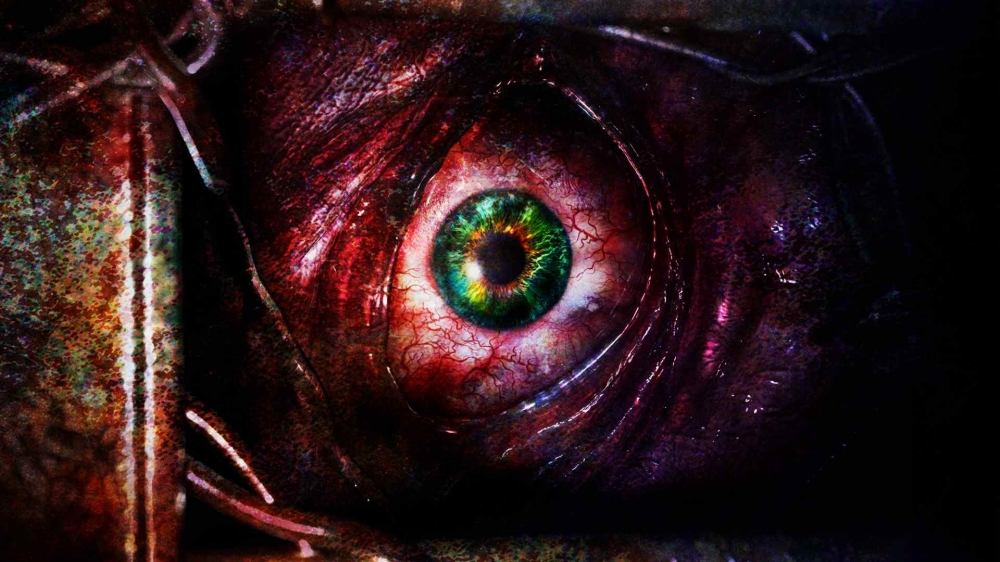
Capcom is a company that knows the value of these tactics well. With Resident Evil HD, a remake of a remake, DmC: Definitive Edition, Devil May Cry 4: Special Edition and Mega Man Legacy, it is making no bones about its dedication to reviving the past. In an official statement following the commercial success of Resident Evil HD, the company reaffirmed its retrospective focus and touted HD remasters as one of its "key business activities." Fans hoping for new entries in their favourite franchises might be waiting some time before the nostalgia well runs dry. Capcom has at least five more Resident Evils, three more Devil May Crys, and over ten Mega Mans it can spruce up before it has to devise something new.
Remasters are a thorny issue. A prettier rendition of the past is nice, sure, but in terms of respecting nostalgia, it's not where the focus should be. Dressed-up versions of older games rarely look as good as the standards of the current generation. Newcomers will never experience the same visual wonderment that accompanied the initial release. The extra work required to even attempt to modernise outdated graphics is way out of proportion with the appeal it generates.
Consider Halo Anniversary. Touching up a ten-year-old game took 343 Industries a full year, less time than building a new game would have taken, but still a considerable investment for a game that's already been made. It sold well enough, despite paling in comparison to new releases in the franchise - Halo 4 sold five times as many copies despite the aspersions surrounding 343's inheritance of the franchise from Bungie.
Also Read: Splitscreen Gaming is a Culture Not a Mode – How Halo 5: Guardians is Getting It Wrong
Also Read: Gears of War 4 Will Have Splitscreen Gaming
Also Read: List of V8 Supercars in Forza Motorsport 6 for Xbox One Revealed
As successful as it was, Halo Anniversary is very much an anomaly. A remaster of its scale was only viable due to the immense fan base that exists for the series, being as it is the herald of the console FPS. Spending so much time and money lovingly revamping the visuals of Project Gotham Racing or Prince of Persia: Sands of Time would likely elicit a significantly tamer commercial response.
This can be seen in the sales numbers for Final Fantasy X/X-2 HD. Despite up-rezzing two PS2 titles and releasing on both PS3 and Vita, it has sold just half of what Halo Anniversary has just on Xbox 360. DmC: Definitive Edition for Xbox One and PS4 has barely broken 150,000 units, a number the then relatively obscure Minecraft smashed on its first day of sale on Xbox Live back in 2012.
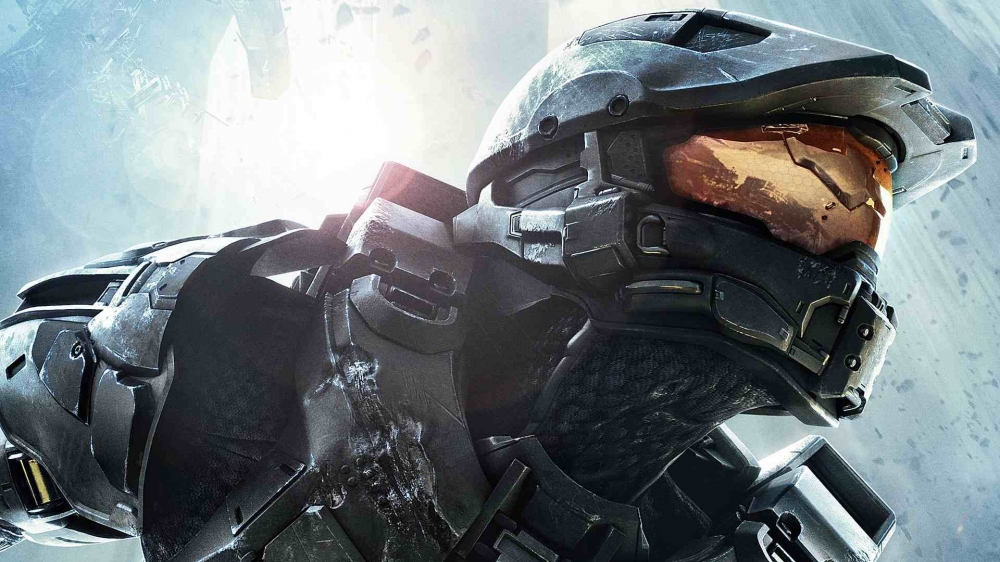
Even Microsoft seems to understand the one-off nature of Halo Anniversary's success. Rather than following it up with the Halo 2 Anniversary that seemed inevitable, the company commissioned 343 and a cadre of co-developers to produce The Master Chief Collection, a package that incorporated the entirety of the core Halo - franchise, four full games and their respective multiplayer components. Of the four, only Halo 2 received the lavish Anniversary remastering, with the first Halo being a port of its existing Anniversary version, and Halo 3 and 4 simply enjoying slightly higher-resolution textures.
The grander scope of the offering came at a hefty cost, one that 343 and co proved unable to pay: the collection launched with a multitude of stability issues that have still not been entirely ironed out to this day, over half a year after release. If even the likes of Halo are not enough to warrant the visual overhaul necessary to pretty up the past for the modem age, then the argument for any other franchise is practically untenable.
Graphics, though, do not maketh the game. This is especially true when nostalgia's involved, as rose-coloured glasses are great at hiding the ravages of time from view. What is far more important in harnessing the power of the past is recapturing the specific emotions of a time and place. Surprise, awe, tension, fear; the key lies in understanding what it was about a game that caused it to collect and keep its loyal fans. Here's a clue: it probably wasn't the number of polygons it had.
Take the original Pac-Man, and its near-unanimously well-received 2010 remake Pac-Man Championship Edition DX. Rather than focusing on reengineering the visuals to better resemble current trends, DX focuses on the essence of the Pac-Man experience: chasing high scores. Utilising online leaderboards and social network integration, DX recaptures the friendly competitiveness of Pac-Man's arcade origins in a way that makes sense given the current state of the industry. By employing the advances of technology to enhance the very things that made its progenitor so popular, DX establishes itself as a worthy successor to a game so seminal it spawned its own top-ten song.
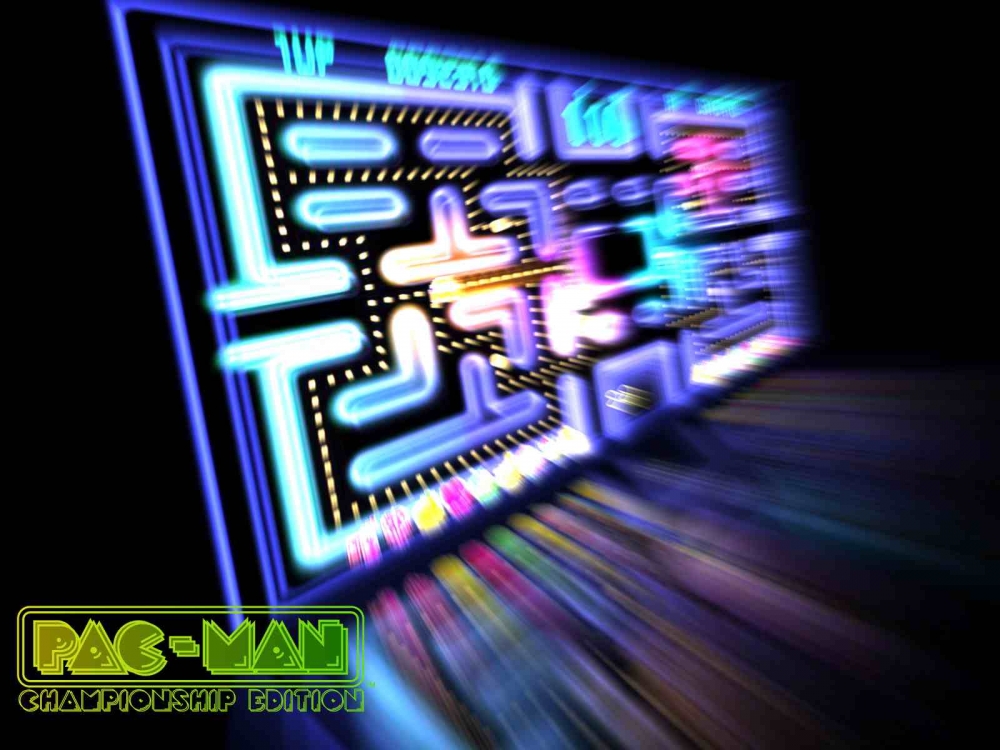
A more recent and even more compelling example of intelligently-designed nostalgia can be found in Rare Replay. Collecting thirty of the British developer's most memorable titles - excluding a few trapped in legal purgatory - the accessibly-priced package exhibits a level of appreciation for its heritage that precious few retrospective endeavours can claim. From its endearing old-timey presentation, with games of yore emulated within a movie-screen frame surrounded by colourful concept artwork, to the milestone achievements providing structure and direction to games that may otherwise have been excessively obtuse, the impression throughout is one of reverence and respect. Not just for Rare, either, but for fans too.
That much is evident in the little touches bejewelling the experience. Save states, progress tracking and the integration of existing saves and achievements from previously owned Xbox 360 games - Rare has even committed to refining the control schemes for games like Jet Force Gemini that were designed for a controller markedly different to those of today.
Better yet, the compelling Snapshots mode offers bite-sized challenges based around the older half of Rare's catalogue, presenting tough new time trials and score hunts that mix things up for those who've seen it all. They even support online leaderboards, reviving that social element that was the cornerstone of gaming during those early years - I bet you can't get further than I can in Battletoads! Like Pac-Man DX, Rare Replay succeeds in evoking the excitement of the past by emulating the essence of our golden memories instead of just their surface sheen. A perfunctory play on the past it most certainly is not.
From a pragmatic perspective, there's a crucial component to Rare Replay's approach that positions it above other nostalgic entreaties: resourcefulness. Going through and administering a Halo Anniversary-style treatment to thirty individual games would not only be practically impossible, but effectively fruitless, too. As many fans as there might be out there for a game like RC Pro-Am, I suspect very few of them are champing at the bit for a comprehensive HD overhaul of the simple isometric racer. Even attempting just a casual touch-up across the smorgasbord of featured games would have been a poor investment of time and money.
Effective nostalgia is a product of a confluence of factors, of which visuals are only the most immediately apparent. Fans can easily look past outdated graphics if the rest of their reverence can be recaptured intact. Gamers without the same fond memories, meanwhile, are unlikely to be converted by higher resolutions and a few less jaggies alone.
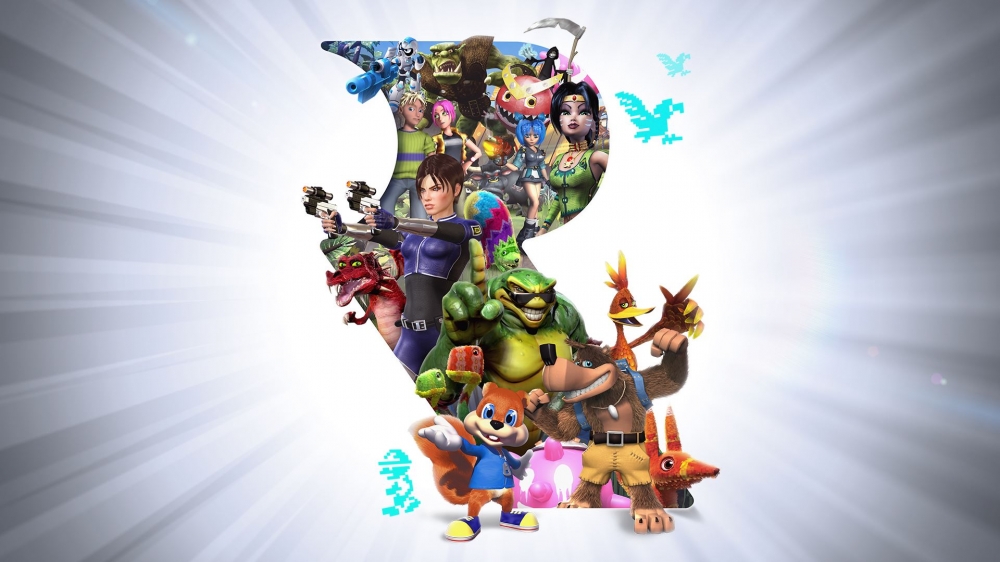
Recognising this, Rare made the wise decision to give existing fans fresh incentives to revisit the treasures of their youth, as well as attract newcomers with a penchant for collection and completion. The milestone system threaded throughout the entire package not only adds a sense of accomplishment to even the most punishing of the included games, but more importantly it hooks into what is, for me, the greatest part of the entire collection: the unlockable videos.
Comprising interviews with developers and designers, fascinating reflections on the studio's history, and sneak peeks at previously unseen material for unreleased games, the exclusive footage is exactly what I, as a Rare fan, want from a tribute to the talented development studio. Getting the chance to hear from the minds behind the games that shaped my adolescence is far and away the most powerful incentive for me to replay games I've finished a half-dozen times already.
This is a lesson other nostalgic appellations would do well to apply. Telling the untold stories and offering insight into the creative processes of games development is both entertaining and elucidating. If a remake, reboot or remaster seeks to honour the memory of its progenitor, what better way than to let the people behind it speak for themselves? Furthermore, the cost of conducting interviews and collecting design documents and concept art is significantly less than that involved in reworking outmoded visuals. And personally, I'd take an hour of discussion concerning the creative challenges of designing an FPS for the N64 over a shiny gloss of polygonal paint any day.
The untapped potential in leveraging nostalgia runs deep. Just at this past E3, the Nintendo Treehouse Direct stream featured Mario creator Shigeru Miyamoto unveiling graph-paper sketches of his initial designs for levels in the first Super Mario Bros. These never-before-seen drawings are the gaming equivalent of George Lucas' original script for Star Wars. Putting aside the fact that they should probably be on display in a museum somewhere behind a case of bulletproof glass, these treasures would make for attractive collectors' items in a Mario compilation, or compelling bonus content in the upcoming Super Mario Maker. Without needing to do much at all, Nintendo could generate a storm of excitement in even its most disenfranchised fans.
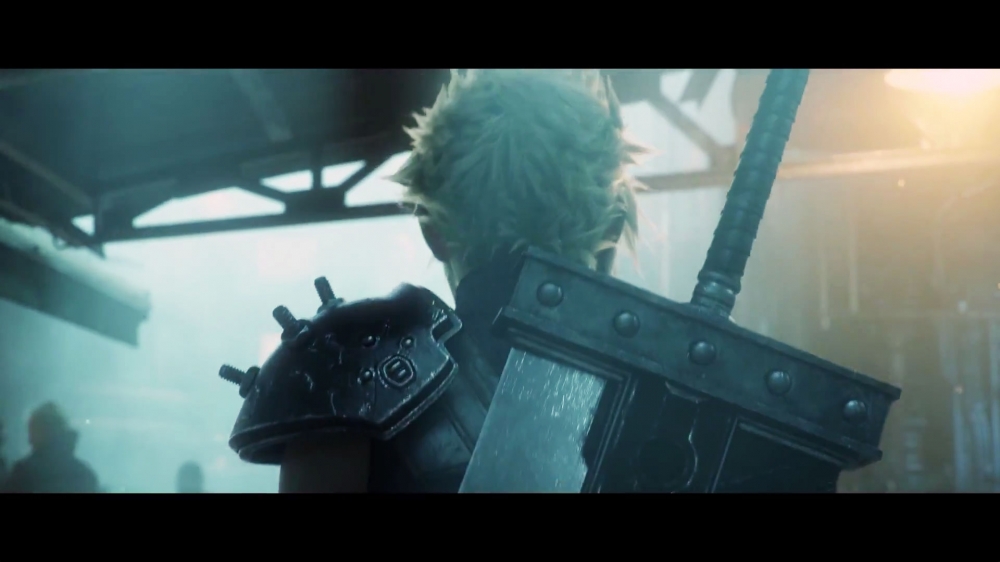
Also at E3, Square Enix announced the long-awaited remake of Final Fantasy VII. The rapturous applause that the visually-arresting trailer received is proof enough of the power of good looks, but that power comes with a number of caveats. Fans have been clamouring for an FF VII remake for over a decade now, and even after this official announcement, we will most likely have to wait another two years at least before we can get our hands on it. This for a game made nearly two decades ago. Judging by the graphical treatment, development of the remake won't come cheap, and that cost is going to be passed on to the consumer. No budget-friendly price tag for us, I suspect.
To make matters worse, selling the game to newcomers and fans who've only played the more recent Final Fantasy games will be tough. There have been significant changes in the mechanics of both the FF series and the JRPG genre in general since VII's release. Unless the game is being effectively remade from the ground up - a task that would be financially suicidal - the all-important core of the game will be a relic trapped in the past.
A smarter use of Square Enix's resources would have been to take the pragmatic approach and keep the visual work to a minimum. Complementary content, of the reverential Rare Replay kind, is what would compel me to buy a new, full-priced version of a game I can pick up for $10 on the PSN store. Perhaps a documentary covering Square's falling out with Nintendo and the transformation that the Final Fantasy franchise underwent in its shift to the Sony PlayStation? That would be of tremendous interest to not just fans, but anyone with a stake in the industry. Or a creative milestone system, fashioned to both assist players unaccustomed to the game's harsher mechanics and to encourage fans to explore alternate paths and strategies. That would alleviate the issue of impenetrability without requiring an expensive mechanical overhaul.
It seems like a no-brainer. A low-cost siren song that seduces the hearts of fans and fresh faces alike. I'm both surprised and disappointed that so few games have made use of the practice. Demo discs used to be packed with just the sort of material that would serve as incentive and education for games of yesteryear. DVDs, too, have long bundled in behind-the-scenes footage and cast interviews to justify reissues and collector's editions. With the games industry mature enough now to have ample history to pull from, there is no reason why we shouldn't expect more from the remakes and remasters publishers are all too happy to sell us again and again and again.
Rare Replay should be the standard by which we judge the treatment of gaming's past. We owe as much not just to ourselves, but to the hobby we hold so dear. A pretty face just isn't enough.
Writer:
Matt Sayer


